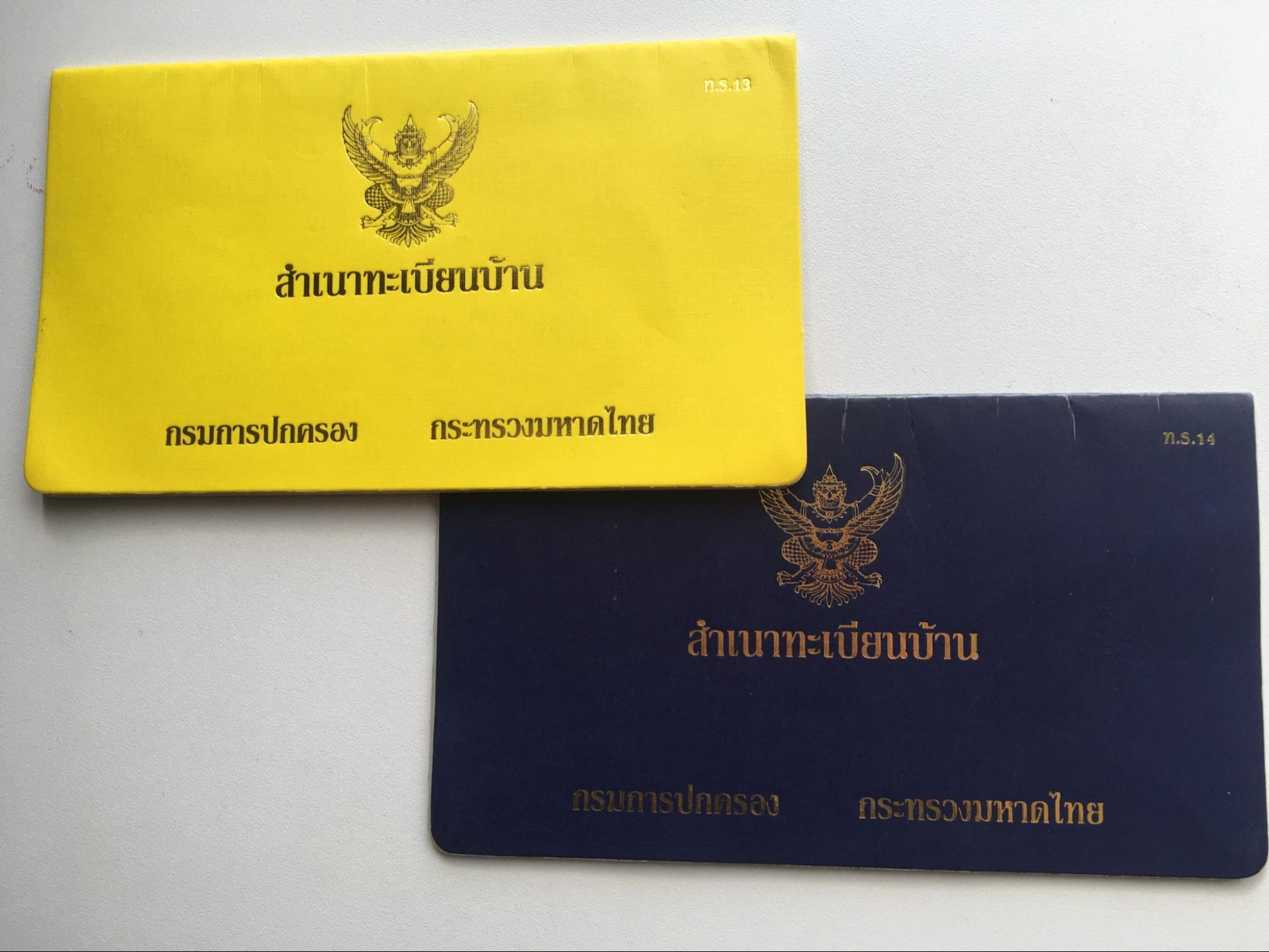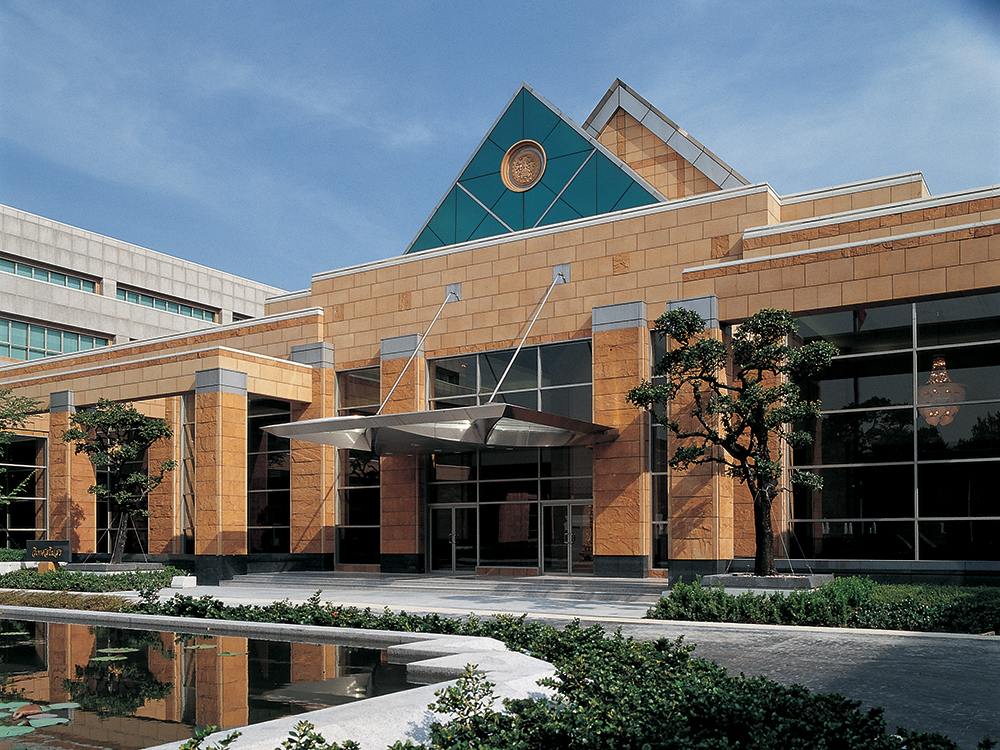Permanent Residency in Thailand
Obtaining permanent residency status in Thailand is ideal for those who are looking to make the Kingdom your home in the long run, or even in becoming a Thai citizen.
While there are many long-stay visa options available for Thailand, they are also accompanied by different requirements and stipulations – like 90-day reporting, visa extensions, transferring money from abroad to buy property, and more. Obtaining Permanent Resident (PR) status in Thailand will allow foreigners to stay without having to do any of the above.
We’ve created a guide for those who are interested in getting Thai PR including who is eligible, as well as the documents you’ll need to provide.
More Thailand expat guides:
What does permanency residency status give you?
So, we’ve mentioned the obvious benefit: no more 90-day reporting or visa extensions. Below are more benefits of holding a permanent residency permit in Thailand:
- Gain the necessary prerequisite towards applying for Thai citizenship
- Finally be on a house registration, a.k.a. tabian baan or ‘blue book’
- Can apply for extension of stays for non-Thai family members
 Before becoming a resident of Thailand, foreigners are given a yellow house registration book.
Before becoming a resident of Thailand, foreigners are given a yellow house registration book.
Image credit: Thai Citizenship
However, it is important to note that permanent residents are still required to obtain re-entry permits when they wish to leave the country and they cannot be out of Thailand for more than 364 days at a time.
There are two types of re-entry permits:
Single-entry
Like its name suggests, this re-entry permit only allows you to leave the country and come back once, and costs ฿1,000 (~USD32).
Multiple-entry
A multiple-entry permit allows travellers to re-enter Thailand the amount of times determined by officials, which is stated on the form and costs ฿3,800 (~USD121).
Prerequisites for applying for Permanent Residency in Thailand
Hold a Non-Immigrant Visa in Thailand for three consecutive years
Any person who has lived in Thailand on a Non-Immigrant Visa for three years and has maintained the same category of the visa – for example, education visa holders need to have held an education visa for three consecutive years prior to applying – the entire time they’ve been here, and who also fulfills the below criteria is eligible for permanent residency.
Speak, read and understand basic Thai
The application process involves an interview with an immigration officer in Thai, as well as a multiple choice question in Thai.
Have a residence in Thailand
One of the documents required to apply for permanent residency in Thailand is a tabian baan where you will be registered should your application be approved.
Have no criminal record
Persons over the age of 14 applying for residency in Thailand are required to go through a criminal background check.
Be prepared to pay
The application fee for permanent residency in Thailand is ฿7,600 (~USD240), however applicants should note that if approved, they must pay ฿191,400 (~USD6,000) for the permit. The exception would be those applying as spouses and children of someone holding a residence permit or is a Thai national, who would only have to pay ฿95,700 (~USD3,000).

While application fees may vary slightly, those interested in Thai PR should also factor in the cost of translations, certifications and potential legal fees.
Types of Permanent Resident visas and requirements
There are five types of permanent resident visas, and each has their own set of requirements. While the amount of documentation may seem overwhelming, the key to a successful and less stressful application process is getting them ready ahead of time.
 Thailand’s Ministry of Foreign Affairs even offers certification services via mail for those living outside of Bangkok.
Thailand’s Ministry of Foreign Affairs even offers certification services via mail for those living outside of Bangkok.
Image credit: a49
We highly recommend leaving yourself plenty of time in order to get documents in foreign languages certified by your embassy in Thailand as well as the Ministry of Foreign Affairs.
1. Investment
Those applying for PR under the ‘Investment’ category must have brought at least ฿10,000,000 (~USD316,780) from abroad into a public company, limited company, stock market, state-issued security, or state enterprise’s security in Thailand.
In order to apply for Permanent Residency based on investment, parties must provide certified documents proving that they met the above criteria; each type of investment requires different records, such as:
For investments in instruments certified by the Stock Exchange Commission:
- Original copy certifying the purchase.
- Copy of the purchasing document.
For investments in government or state-issued bonds:
- Certified letter from a Thai bank confirming the bond’s purchase
- Original copy of the bond certificate
- Copy of the bond certificate
Investment in a Limited or Public Limited Company:
- A Ministry of Commerce certified certificate of company registration dating back no more than three months.
- Copies of the company’s financial statements and corporate income tax returns from the past three years.
- Evidence of Value-Added Tax or Specific Business Tax registration.

If granted PR status in Thailand, the resident would have to submit evidence that the investment capital has been maintained to the Immigration Bureau by the end of September every year for three years, or risk losing their PR status permanently.
2. Employment/Business
There are two sets of requirements for two different subsets of the “Business” category: one for applicants who make between ฿50,000 (~USD1,600) – ฿80,000 (~USD2,560) and those who make ฿80,000 (~USD2,560) and above.
Salary between ฿50,000 (~USD1,600) – ฿80,000 (~USD2,560)
- The applicant must provide that they received a salary at least ฿50,000 (~USD1,600) for at least two years before applying
- The applicant proves that they have filed and paid taxes throughout their employment.
- The applicant must have held a position that gives them signing authority, like a Company Director, for one year before starting their PR application.
- The company where the applicant is employed must have at least ฿10,000,000 (~USD316,780) of registered capital.
- The business where the applicant works must be:
- A tourism-based company that attracts at least 5,000 international visitors to Thailand per year. The applicant must acquire a certified government document as proof of their number of average visitors.
- A business where the applicant holds at least ฿5,000,000 worth of fully paid-in shares for at least two years prior to the application submission date.
- An entity that has brought in at least ฿100,000,000 in foreign currency to Thailand and provides loans to domestic manufacturing companies.
- An enterprise that participates in international commerce and has a demonstrated profit of ฿20,000,000/year in export sales over the past three years. Applicants can prove this with a certified letter from one of Thailand’s commercial banks.
Salary of ฿80,000 (~USD2,560) and above
- The applicant must have been employed at their current workplace for at least one year prior to the date of application.
- For the past two years, the applicant must have received a monthly remuneration of at least ฿80,000 (~USD2,560) OR paid at least ฿100,000 (~USD3,200) in personal income taxes.
- The applicant must prove that they have held a Thai Work Permit for three continuous years prior to applying.
3. Humanitarian
“Humanitarian” based PR permits are dependent on your relationships with Thai citizens or a person holding Thai permanent residency. While this seems to be an easy option for those married to a Thai spouse, the Thai Immigration Bureau will only accept applications from those who honour very specific types of relationships with different requirements for each.
 When applying for a “humanitarian” based PR permit, the Immigration Bureau asks that the applicant and the “sponsor” – the Thai national or Thai PR holder – establish clearly who is the “patron”. This is so the immigration bureau knows whether or not the applicant plans to support their sponsor, or be supported by their sponsor and screen the application accordingly.
When applying for a “humanitarian” based PR permit, the Immigration Bureau asks that the applicant and the “sponsor” – the Thai national or Thai PR holder – establish clearly who is the “patron”. This is so the immigration bureau knows whether or not the applicant plans to support their sponsor, or be supported by their sponsor and screen the application accordingly.
Below is a list of the available options and the qualifications each applicant must possess.
Applicant is the spouse of a Thai national
- The marriage between the applicant and their spouse needs to have been registered at least five years prior to the application date.
- The Thai spouse must clearly state whether they want to be under the patronage of their spouse, or to provide patronage to their spouse.
- The “patron” must provide evidence of having a monthly income of at least ฿30,000 (~USD950) for the past two years as well as their tax returns.
Applicant is the spouse of a Thai national, with whom they have a biological child
- The marriage between the applicant and the spouse needs to have been registered for at least two years.
- In the event that either party is infertile, then evidence must be provided to the Immigration bureau.
- The Thai spouse must clearly state whether they want to be under the patronage of their spouse, or to provide patronage to their spouse.
- The “patron” must provide evidence of having a monthly income of at least ฿30,000 (~USD950) for the past two years as well as their tax returns.
Applicant in a marriage with a Thai national where one of them are over the age of 50
- The marriage between the applicant and the spouse needs to have been registered for at least two years.
- The Thai spouse must clearly state whether they want to be under the patronage of their spouse, or to provide patronage to their spouse.
- The “patron” must provide evidence of having a monthly income of at least ฿65,000 (~USD2,072) for the past two years as well as their tax returns.
Applicant is a foreign national who is married to someone who was granted a Thai residence permit
- The marriage between the applicant and the spouse needs to have been registered for at least two years.
- The holder of the residence permit must clearly state whether they want to be under the patronage of their spouse, or to provide patronage to their spouse.
The “patron” must possess the necessary qualifications to work and/or invest in the Kingdom.
Applicant is a foreign child who wishes to be under the support of a Thai parent
- Present evidence of being the biological child of said parent.
- Must be under 20 years of age at the date of application.
- If the applicant is older than 20, then they can still apply as long as they can provide evidence that they are in need of parental support such as working towards a bachelor’s degree prior to the date of application, or a medical certificate indicating that they cannot take care of themselves.
- Must be unmarried.
- The Thai parent must clearly state they wish to support the child.
Applicant is a foreign child who wishes to support a Thai parent
- The parent they plan to support must be at least 50 years old.
- Present evidence of being the biological child of said parent.
- Provide proof of having received a monthly income of at least ฿30,000 (~USD950) for the past two years as well as their tax returns.
- The Thai parent must clearly state they wish for the child’s support.

Applicant is a foreign child who wishes to support of a parent with Thai permanent residency
- Present evidence of being the biological child of said parent.
- The parent they plan to support must be at least 50 years old.
- The parent must clearly state they wish to be supported by the child.
The child must demonstrate necessary qualifications to work and/or invest in Thailand.
Applicant is a foreign child who wishes to be under the support of a parent with Thai permanent residency
- Present evidence of being the biological child of said parent.
- Must be under 20 years of age at the date of application.
- If the applicant is older than 20, then they can still apply as long as they can provide evidence that they are in need of parental support such as working towards a bachelor’s degree prior to the date of application, or a medical certificate indicating that they cannot take care of themselves.
- Must be unmarried.
- The parent must clearly state they wish to support the child.
The parent must demonstrate necessary qualifications to work and/or invest in Thailand.
Applicant is a foreign parent who wishes to support a Thai child
- Present evidence of being the biological parent of said child.
- The child whom they wish to support must be under 20 years old and unmarried.
- If the applicant is older than 20, then they can still apply as long as they can provide evidence that they are in need of parental support such as working towards a bachelor’s degree prior to the date of application, or a medical certificate indicating that they cannot take care of themselves.
- Provide proof of having received a monthly income of at least ฿30,000 (~USD950) for the past two years as well as their tax returns.
Applicant is a foreign parent who wishes to be supported by a Thai child
- The applicant must be 50 years or older.
- Present evidence of being the biological parent of said child.
- The child must provide proof of having received a monthly income of at least ฿30,000 (~USD950) for the past two years as well as their tax returns.
- The child must clearly state they wish to support the applicant.
Applicant is a foreign parent who wishes to support a child with Thai permanent residency
- Present evidence of being the biological parent of said child.
- The child whom they wish to support must be under 20 years old and unmarried.
- If the applicant is older than 20, then they can still apply as long as they can provide evidence that they are in need of parental support such as working towards a bachelor’s degree prior to the date of application, or a medical certificate indicating that they cannot take care of themselves.
- The Thai parent must clearly state they wish to support the child.
- The parent must demonstrate necessary qualifications to work and/or invest in Thailand.
Applicant is a foreign parent who wishes to be supported by a child holding permanent residency in Thailand
- The Applicant must be 50 years or older.
- Present evidence of being the biological parent of said child.
- The child must clearly state they wish to support the applicant.
- The child must demonstrate necessary qualifications to work and/or invest in Thailand.
4. Expert
The Thai immigration Bureau will grant an Expert-based permanent residency permit to those who possess a special skill that will better the country and has a role that requires them to stay and work in Thailand for three consecutive years.
The qualifications for applicants under the Expert category include:
- Holding a Bachelor’s Degree or higher.
- Demonstrates skills and knowledge that is required to develop the nation.
- Prove their contributions to the field in Thailand for at least three consecutive years before application submission date.
- The authority under which the applicant is demonstrating their expertise must issue a letter certifying their contributions over the past three consecutive years.
5. Special
This category is reserved for those whose contributions to Thailand have been recognised by the Thai government, national institute, or anyone deemed qualified by the Immigration Bureau.
How do I apply for permanent residency in Thailand?
Whilst the application submission period changes every year, it typically starts in September and ends on 31st December each year. The Bureau accepts 100 nationals from each country per year.
The interview and testing process
After submitting all your documents to the immigration bureau, officials will call you to partake in an interview with an immigration officer in Thai, which will be recorded. Thus, applicants should at least have a basic understanding of the language in order to hold a semi-formal conversation with the interviewees at the immigration bureau.

They are also required to take a written test with ten multiple-choice questions. The questions are written in Thai; however immigration officials are permitted to help you in the event that you cannot read Thai.
However, it is highly recommended to learn how to read Thai, as it can prevent communication issues with your test administrator if they’re unable to hold a productive Thai-English conversation.
Together, the interview and the test are worth 100 points and applicants need at least 50 points to pass. While the language portion of the test is important, the immigration bureau also factors in your personality, attitude and relationship with Thai citizens – so best put your best foot forward.
Getting your permit
In addition to the long process of certifying and collating all the necessary documents and the interview stage, applicants now have to play the waiting game. Probably the most frustrating part of the permanent residency application procedure is the fact that the immigration office does not give you a timeline – those who went through the process claim that they have waited between one to three years.
Applying for permanent residency in Thailand
There are multiple steps required to apply for permanent residency in Thailand – the number of documentation required alone can be daunting and overwhelming. However, one of the most important requirements is having stayed in the Kingdom for at least three years and to be able to demonstrate an understanding of the culture.
You can knock out those prerequisites pretty easily so long as you make a conscious effort to learn Thai mannerisms and their rationale.
For more information on residency permits and the relevant documentation, visit the official Thai Immigration website.
Learn more about Thai culture with these articles:
- Thai slang words and what they mean
- Thai superstitions that locals abide by
- Subtle Thai traits that confuse foreigners
Cover images adapted from: a49 (Right)
Enjoying The Smart Local Thailand? Follow us on Facebook and Instagram for more stories like this.

Drop us your email so you won't miss the latest news.







